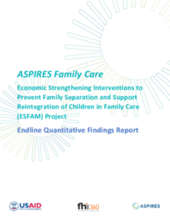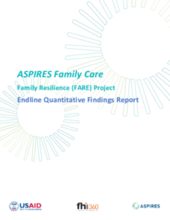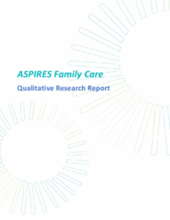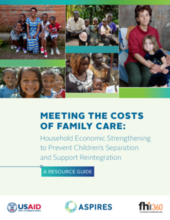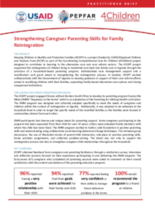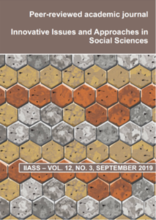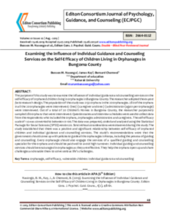Displaying 501 - 510 of 1617
The Economic Strengthening to Keep and Reintegrate Children in Family Care (ESFAM) project was developed to help build the evidence base on how to appropriately match economic strengthening (ES) activities with families at risk of family-child separation and with families in the process of reintegrating a previously separated child. In addition to supporting families, ESFAM offered an opportunity for learning about how to provide these services and how well they worked. This report focuses on the latter and summarizes changes in key indicators related to family-child separation over the course of the project.
The Family Resilience (FARE) project was developed to help build the evidence base on how to appropriately match economic strengthening (ES) activities with families at risk of family-child separation and with families in the process of reintegrating a previously separated child. The project offered an opportunity for learning about how to provide ES and other family strengthening services and how well they worked. This report focuses on the latter and summarizes changes in key indicators related to family-child separation over the course of the project.
In support of the Accelerating Strategies for Practical Innovation & Research in Economic Strengthening (ASPIRES) project's objective to assess the effects of different types of economic strengthening activities integrated with family support activities among targeted families, the Family Care project designed a mixed methods evaluation to be implemented alongside programming. The findings presented in this report are derived from the longitudinal descriptive data generated as part of the evaluation design.
This resource guide aims to assist program designers, funders, and implementers to select and incorporate appropriate and effective household economic strengthening (HES) measures into programs to preserve or reestablish family care for children.
This Practitioner Brief from the the Coordinating Comprehensive Care for Children (4Children) project presents key learning and recommendations from the Keeping Children in Healthy and Protective Families (KCHPF) project in Uganda, which supported the reintegration of children living in residential care back into family care through the provision of a household-based parenting program, individualized case management support and a reunification cash grant aimed at strengthening the reintegration process.
This study from Innovative Issues and Approaches in Social Sciences examined perceptions and practices of domestic adoption in Adama City in Oromia/Ethiopia. The study reveals that people’s perception towards adoption practice, adoptive parents and children is mixed; it could be positive and encouraging or negative and discouraging.
This paper examines all policy and laws related to families in the South, West, East and Central regions of sub-Saharan Africa.
This article examines the challenges encountered by, and the opportunities available to, young adults as they transition from informal kinship-based foster care to independent living in the Bikita District of Zimbabwe.
The purpose of this study was to examine the influence of individual guidance and counselling services on the self-efficacy of orphaned children living in orphanages in Bungoma County, Kenya.
The special issue of Emerging Adulthood titled “Care-Leaving in Africa” is the first collection of essays on care-leaving by African scholars. This article, coauthored by scholars from North and South, argues in favor of North–South dialogue but highlights several challenges inherent in this, including the indigenizing and thus marginalizing of African experience and scholarship and divergent constructions of key social concepts.

